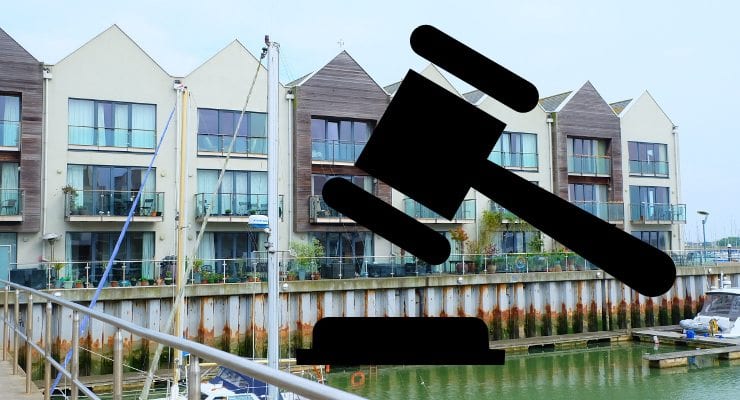Can a Freeholder Refuse to Extend a Lease?
On 7th November 2023, the King’s Speech referenced upcoming leasehold reforms that are set to shake up property ownership as we know it. The Leasehold and Freehold Bill, which is due to be put in front of Parliament very soon, was masterminded with the intention of making it easier and more affordable for leaseholders to extend their lease, among other things.
This, of course, suggests that getting a lease extension is an arduous and potentially expensive process. In this article, Lawhive’s expert property solicitors focus on if and how a freeholder can refuse to extend a lease currently, and how leaseholders can contend with this until the new bill becomes law.
Extending a lease: what you need to know
Before we address whether or not a freeholder can refuse to extend a lease. Let’s look at the current rules surrounding lease extensions as they are today.
There are two ways a leaseholder can extend the length of their lease: the informal route and the formal (statutory) route.
This is important to know because which route you take makes a difference as to whether a freeholder can refuse to extend a lease or not.
Can a freeholder refuse an informal lease extension?
An informal lease extension is when a leaseholder privately approaches a freeholder and asks if the lease terms can be extended. To make an informal offer, a leaseholder doesn’t have to own the property legally for any length of time, nor are there any standard lease extension terms.
If a leaseholder makes an offer to extend a lease, the freeholder does not have to accept it at all if they don’t want to. It’s a matter of negotiation and agreement which both parties should agree on before moving forwards.
A freeholder might refuse an informal lease extension because they don’t agree to the proposed terms and conditions, or because of financial considerations or future plans for redevelopment.
In short, informal lease extensions are subject to negotiation and undoubtedly the upper hand lies with the freeholder who is able to negotiate more favourable terms for themselves, bump up premiums and charges, or outright refuse if they wish.
Can a freeholder refuse a statutory lease extension?
Statutory lease extensions change the game somewhat for leaseholders but there are certain conditions they need to meet to be eligible for one:
- They must have owned the property for at least two years and
- The original lease term must have been at least 21 years.
If a leaseholder meets these requirements, they have a legal right to extend their lease by 90 years for flats or 50 years for houses. What’s more, ground rents are reduced to a peppercorn ground rent, which is essentially zero.
A freeholder can refuse a statutory lease extension, but only if the remaining period of the lease is less than five years from the date of the Tenant’s Notice and they can prove they intend to demolish or redevelop the building.
What’s more likely to happen in these situations is that the freeholder and leaseholder will enter negotiations around the price and terms of the new lease. If an agreement can’t be arranged then the leaseholder has the right to apply to the Upper Tribunal for an independent decision.
How will proposed leasehold reforms change the lease extension process?
Planned reforms to how leaseholds are managed are slated to target the lease extension process explicitly in order to make it easier and more affordable for leaseholders by:
- Increasing the standard lease extension term to 990 years for both houses and flats;
- Removing the requirement for leaseholders to have owned their property for two years before they can apply for a statutory lease extension;
- Introducing a simpler way of valuing the cost of extending a lease through a statutory calculation;
- Getting rid of the leaseholder’s liability to cover freeholder’s legal costs if they’re pulled up on bad practices.
In relation to refusing a lease extension, the proposed reforms will totally remove the informal route, where freeholders are able to refuse or negotiate unfavourable terms. Instead, they will only be able to refuse under certain circumstances, mainly if they are planning to redevelop or demolish the property in the very near future.
It’s important to note, however, that while leasehold reforms were referenced in the King Speech, there is not yet clear information on how these reforms will actually look, when they’ll be implemented, or if they will be implemented. Lots of things
So, it’s important for leaseholders to understand the rules and laws as they are today when making a decision on whether they should extend their lease or not, and the circumstances in which a freeholder can, and may, refuse.
About Lawhive
Lawhive is a legal services provider on a mission to make the law simple, accessible and affordable for everyone. They offer a modern way for individuals in the UK to get their legal matters sorted quickly by the UK’s top solicitors and lawyers for a fraction of the cost of a traditional law firm. Instead of lining the pockets of already wealthy partners with extortionate hourly rates, Lawhive offers on demand access to solicitors at fixed-fee prices.









